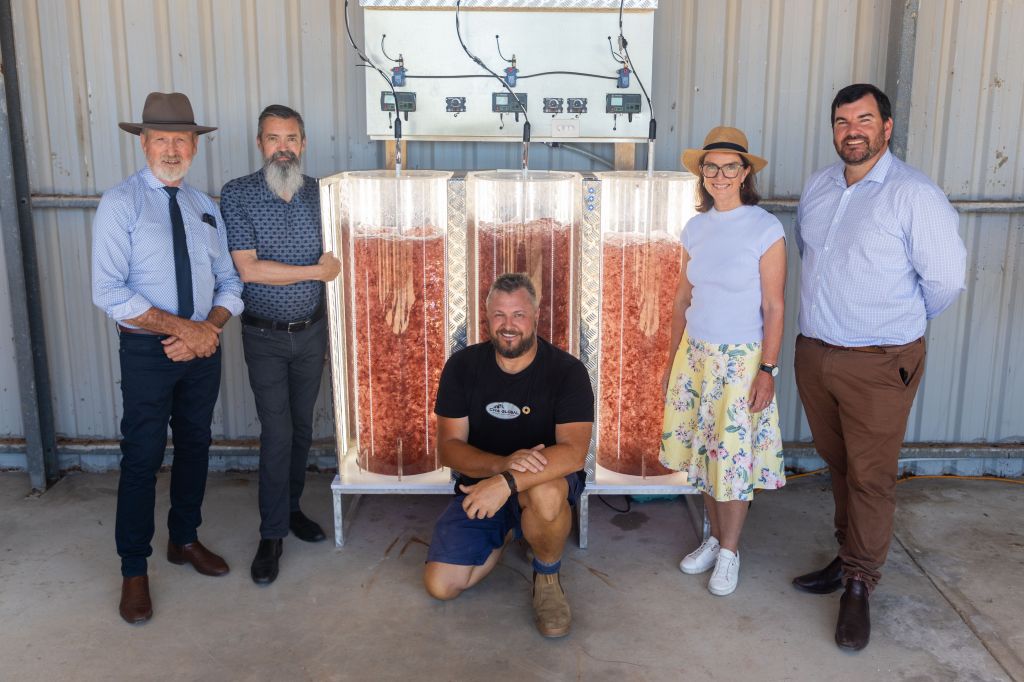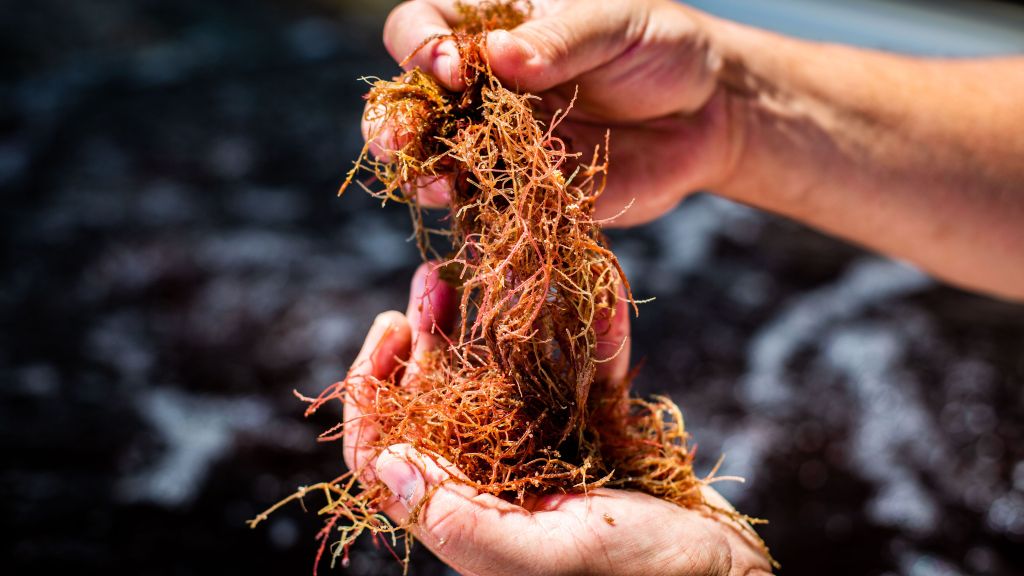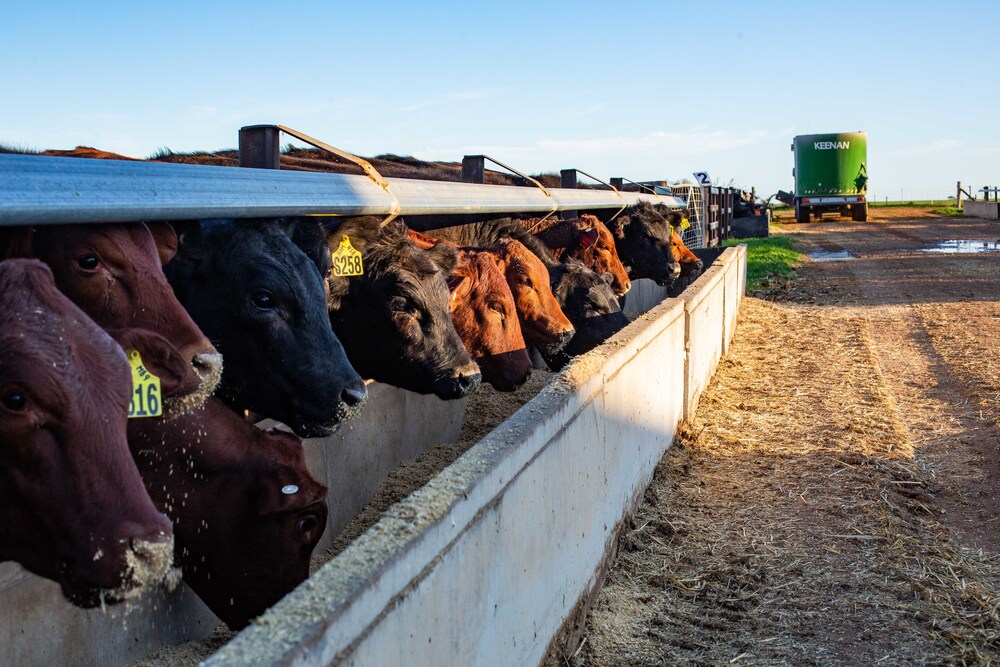The first shipment of Australian ‘reduced methane’ beef is set to be exported later this year thanks to the signing of an agreement between CH4 Global and CirPro (Australia).
CH4 Global, which produces methane-reducing feed supplement Methane Tamer, and sustainable protein processor CirPro said that the announcement follows the successful feedlot trials of CH4 Global’s Methane Tamer supplement in South Australia.
Both companies said they have committed to increase commercial supply and offtake of the supplement – a 100 per cent natural product based on asparagopsis seaweed native to Australia – to meet export demand.
CirPro was established in 2017 to design and implement greenfield Advanced Livestock and Co-Product Processing (ALCOP) facilities that support sustainable protein processing.

CirPro CEO Reg Smyth commented on the environmental impact of cooperating with CH4 Global, saying, “We have shown that feeding cattle Methane Tamer at a commercial scale improves efficiency and is 100 per cent safe for the animals, and there is no difference to the beef’s taste.
“There have also been significant benefits to the cattle fed Methane Tamer, as they’ve achieved the same weight gain as the control group while consuming less feed per day, representing an improvement in feed conversion efficiency of a few per cent over a 100-day period.
“Based on 100 cattle in a feedlot for 100 days, we can eliminate the equivalent GHG emissions of driving a petrol-powered passenger vehicle at least 100 times between Sydney and Perth, or the equivalent amount of carbon sequestered by 1,500 tree seedlings grown for 10 years.”
Smyth added that the agreement will enable CirPro and its partners to scale to at least 100,000 cattle per day, with many of those cattle going to export markets showing an increasing demand for low carbon beef products. He also said that while the company cannot disclose the export customers at this time, the beef will be EU compliant.

CH4 Global CEO, Dr Steve Meller, said that thanks to the company’s progress in the construction of its new facilities in South Australia, it is aiming to commence large scale production of the supplement from early 2025.
“Over the past week I have been overseeing the construction progress of our new EcoPark, which is being built north of Port Lincoln in South Australia,” Dr Meller said.
“Following the first sod-turning in January this year, we are pushing forward with construction of the EcoPark as fast as possible to meet what we are now seeing as a significant global demand for beef that can demonstrate direct, meaningful methane emissions reductions using an all-natural product in Methane Tamer and not an extract or a synthetic material.”
Meller also cited the recently announced world’s first livestock emissions tax as an example of how governments around the world are working to require stricter transparency measures from the meat and dairy industries.
“The world is moving rapidly to tackle greenhouse gas emissions,” Meller said. “The recently announced Danish tax on livestock emissions is an example of the direct implications for producers, and retailers, who will increasingly be required to source and demonstrate traceability for meat that can prove direct methane reduction.
“Using Methane Tamer, we are implementing an intensive reduction strategy where we have control over the end-product to ensure consistency of effect, stability of the product, and quality of an all-natural product.
“The product has demonstrated up to 90 per cent methane reduction, but we are supporting claims of 70 per cent reduction to ensure variability in use of product on farms is accounted for. Together with HB Rural and Mort & Co, we will continue to collect data to support the benefits in market.”
Founded in 2018, CH4 Global was recently ranked among America’s Top GreenTech Companies by TIME Magazine.

Methane-tamping cattle feed: the drawbacks
Despite the science-backed effects of using red seaweed as a methane-reducing feed additive, some experts say that there are still several drawbacks that need to be addressed.
For example, research published last year involving NZ industries and scientists found that while positive effects on milk production and performance are observed where selected seaweeds are fed to cattle, other studies found reductions in performance traits.
The researchers also called attention to the cost associated with wild seaweed harvest and aquaculture production, saying that improvements were essential to the viability of using seaweed to reduce ruminant emissions.

Meanwhile, a recently published UN report on the food safety implications of using environmental inhibitors found signs of inflammation and abnormalities in rumen cell walls of cows fed asparagopsis.
The report – which includes input from New Zealand’s Environmental Protection Authority – also indicates that most research to date on methane inhibitors has focused more on productivity improvements than on the impact on non-target organisms and human consumption of treated food products.
Scientific studies conducted in Australia and New Zealand have also suggested that bromoform can have adverse effects on human health and the environment, including potential damage to the ozone layer and risk of toxicity related to the presence of bromoform residues in the milk or urine of lactating cows.
However, the UN report notes in studies of up to 147 days there was no detected bromoform in products from treated animals.
Dr Meller responded to the topic in a recent interview with Farmer’s Weekly in New Zealand, claiming that given the amounts in which CH4 Global’s product is supplied to animals, there is no risk associated with it.
To stay up-to-date on the latest industry headlines, sign up to Future Alternative’s enewsletter.
Posted on:


